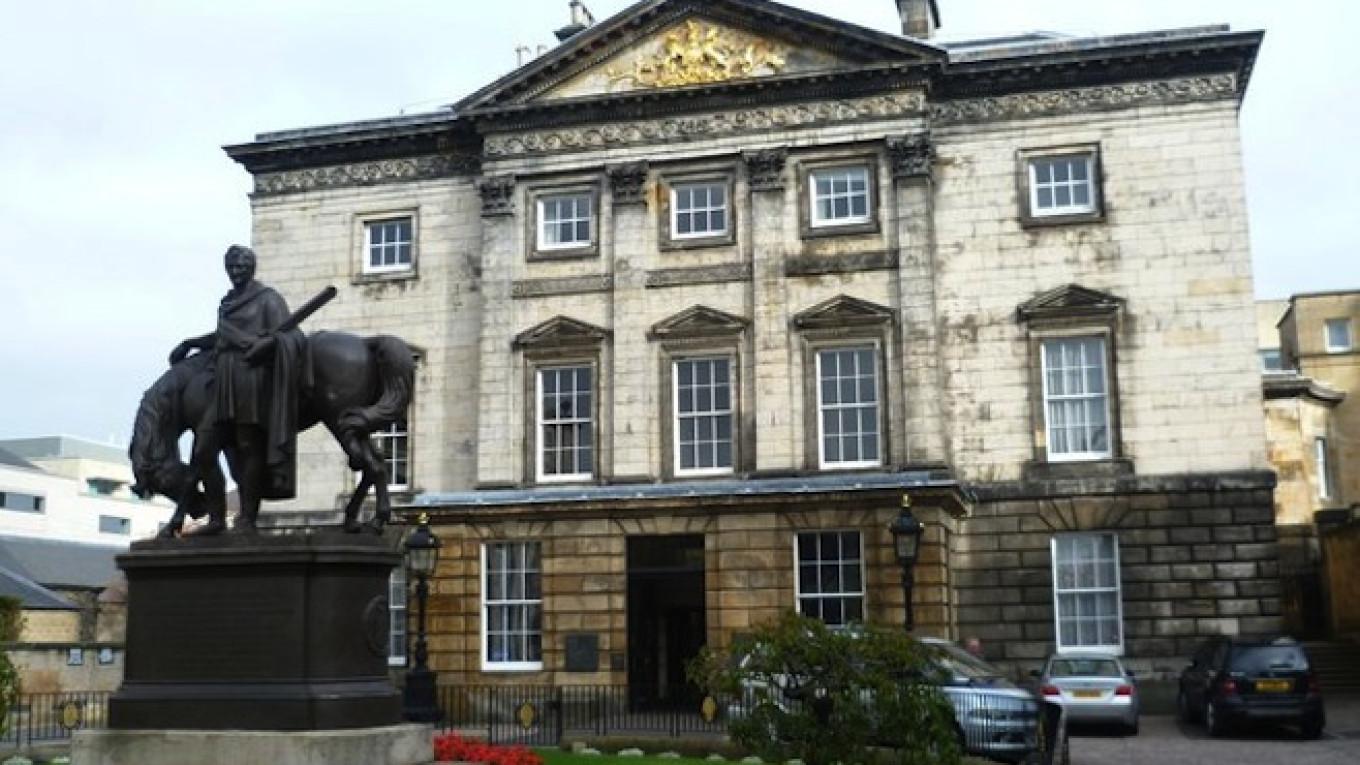LONDON – Part-nationalized British lender Royal Bank of Scotland has placed restrictions on its lending in Russia, responding to the prospect of toughening international sanctions against Moscow over its role in the Ukraine crisis.
RBS, 81 percent-owned by the British government, said it had reviewed credit ratings, adjusted lending limits and placed additional credit restrictions on new business in Russia.
Industry sources said RBS is reviewing the potential impact of international sanctions on its Russian business and could reduce its business further in the region.
The United States and major European powers agreed on Monday to impose more sanctions on Russia, hitting Moscow's banking, technology and arms sectors.
RBS said on Friday its lending in Russia had reduced by £100 million ($169 million) to £1.8 billion ($3 billion) during the first half of the year. That included £900 million ($1.5 billion) of? corporate lending and £600 million ($1 billion) of? lending to? banks.
RBS said nearly half of its lending to Russian banks was fully hedged. The bank said its total Russian exposure, including assets held off balance sheet for clients, amounted to 2.1 billion pounds ($3.5 billion).
Other European banks and companies which operate in Russia are taking similar action to RBS to curb their exposure as sanctions are imposed over Moscow's support for pro-Russian separatists in Ukraine.
Dutch Bank ING, which has been in Russia and Ukraine for 20 years, with combined loans worth 7.5 billion euros ($10.1 billion) and 1.5 billion euros ($2 billion) respectively, said its business was on a case-by-case basis.
"We are closely evaluating our portfolio and are reviewing our acceptance criteria more closely than before. Where possible we will reduce our portfolio," a bank spokesman said.
German sportswear firm Adidas said on Thursday it was increasing the number of store closures in Russia, while French oil major Total stopped buying shares in Russian partner Novatek last month.
The boss of Austrian lender Raiffeisen, whose biggest market is Russia, warned on Tuesday that sanctions would harm not just Russia but also Ukraine and the European Union.
Echoing this, Poland's Deputy Prime Minister Janusz Piechocinski was quoted as saying sanctions between the European Union and Russia will shave 0.6 percentage points off Poland's economic growth this year.
Russia's three largest banks sought to assure clients and investors on Friday that they had the resources necessary to fulfill obligations despite their inclusion on the EU's latest round of sanctions for Russia's role in the Ukraine crisis.
British banks are relatively unexposed to Russia, compared with European rivals, according to industry sources.
Scottish Vote
RBS also said on Friday a vote by Scotland to become independent from the rest of the United Kingdom could significantly increase its costs and have a material impact on its business, repeating an earlier warning.
The bank said earlier in the year that it was considering its options if Scots were to vote in a referendum on Sept. 18 to end their 307-year union with England.
It has been careful not to enter the political debate over Scottish independence, repeatedly saying that the matter is one for the Scottish people to decide.
Recent opinion polls have suggested Scottish separatists are closing the gap on their unionist rivals, though a 'no' to independence still looks more likely.
RBS also warned on Friday that an investigation into the manipulation of foreign exchange markets could have a material impact on its profits. McEwan had previously said the probe could pose a bigger problem for banks that the Libor interest rate rigging scandal.
See also:


